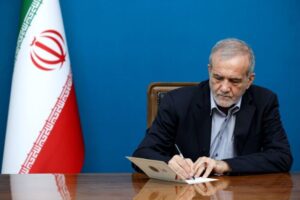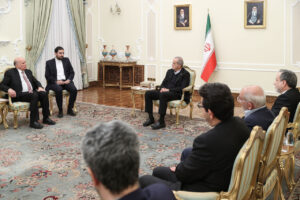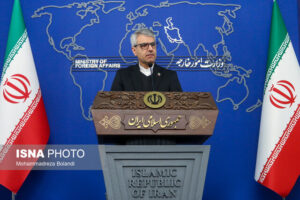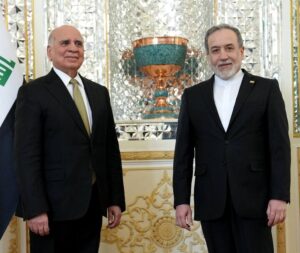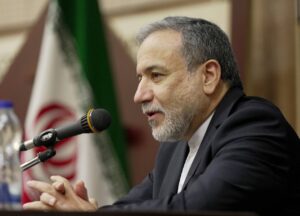Introduction
In international law, sovereign states inherently possess all rights unless explicitly restricted by treaties or customary law (Crawford, 2012). The right to uranium enrichment for peaceful nuclear energy, a dual-use technology, is a focal point of debate within the nuclear non-proliferation regime. The Treaty on the Non-Proliferation of Nuclear Weapons (NPT) affirms the “inalienable right” of states to develop peaceful nuclear technology (NPT, 1968). Yet, nuclear weapon states (NWS) often seek to limit NNWS access to enrichment technologies, citing proliferation risks.
This article argues that NNWS retains the right to uranium enrichment absent explicit legal prohibitions, using Iran’s enrichment program as a case study. It examines the NPT, JCPOA, UNSC Resolution 2231, and the U.S. 123 Agreement to assess the legal, political, and normative dimensions of this right. The analysis addresses attempts to reinterpret or restrict enrichment rights and the implications for nuclear equity.
A. Legal Basis for Enrichment Rights:
The Non-Proliferation Treaty (NPT)
Article IV of the NPT states: “Nothing in this Treaty shall be interpreted as affecting the inalienable right of all the Parties to the Treaty to develop research, production, and use of nuclear energy for peaceful purposes” (NPT, 1968). This provision, verified as accurate, encompasses uranium enrichment, as no clause in the NPT explicitly prohibits it or specifies enrichment levels (Joyner, 2011). Enrichment is not inherently linked to weapons production; its dual-use nature does not justify blanket restrictions. Analogously, technologies like computers or construction, which could indirectly support weapons programs, are not prohibited due to their potential misuse.
Efforts by NWS to reinterpret Article IV as implicitly limiting enrichment technologies lack legal grounding. The absence of restrictions in the NPT and its Additional Protocol (IAEA, 2001) reinforces the sovereign right of NNWS to pursue enrichment under International Atomic Energy Agency (IAEA) safeguards (Ford, 2010).
JCPOA and UNSC Resolution 2231
The Joint Comprehensive Plan of Action (JCPOA), concluded in 2015, explicitly recognizes Iran’s right to enrich uranium on its soil. Annex I, Section A, permits Iran to maintain a stockpile of 300 kg of uranium enriched up to 3.67% for fifteen years, verified as accurate (JCPOA, 2015). This provision was a negotiated outcome, reflecting Iran’s insistence on its enrichment rights.
UNSC Resolution 2231 (2015), which endorses the JCPOA, is binding on all UN member states, including the United States, under Article #25 of the UN Charter (United Nations, 1945). The resolution affirms Iran’s right to enrich uranium, with temporary limits on enrichment levels and stockpiles (UNSC, 2015). These limits do not negate the principle of enrichment rights but regulate their exercise. Attempts to challenge this right, particularly through U.S. sanctions or threats, contravene Resolution 2231 and international law (Mousavian & Toossi, 2017).
B. Political Challenges to Enrichment Rights
U.S. Policy and the JCPOA
In 2018, U.S. President Donald Trump withdrew from the JCPOA, calling it “the worst deal ever negotiated” (Trump, 2018, as cited in BBC News, 2018). This withdrawal, verified through public statements, does not nullify Iran’s rights under the JCPOA, as Iran remains a party to the agreement, nor does it alter the binding nature of Resolution 2231. U.S. sanctions and threats of military action to curb Iran’s enrichment program violate the prohibition on the threat or use of force under Article 2(4) of the UN Charter (United Nations, 1945).
The U.S. 123 Agreement and the “Gold Standard”
The U.S. 123 Agreement, named after Section 123 of the Atomic Energy Act, governs U.S. nuclear cooperation with other states (U.S. Department of State, 2023). The “gold standard” policy, verified as accurate, requires NNWS to forgo domestic enrichment and reprocessing in exchange for U.S. nuclear technology (Pomper & Tarini, 2017). South Korea, for example, agreed to these terms in its 2015 nuclear cooperation agreement with the U.S., forgoing enrichment in exchange for reactor technology (Nikitin, 2016).
This policy implicitly acknowledges that NNWS possesses an inherent right to enrichment, as the U.S. requires explicit renunciation of this right. Absent such agreements, the right remains intact, reinforcing the sovereignty-based argument that states retain all rights not expressly ceded (Crawford, 2012).
C. Normative and Legal Implications
The right to uranium enrichment for NNWS is grounded in the principle of sovereignty and the NPT’s explicit provisions. Attempts to impose restrictions through political pressure, sanctions, or reinterpretation of treaties undermine the NPT’s legitimacy and perpetuate technological inequality (ElBaradei, 2006). The U.S.’s unilateral actions against Iran, including sanctions and threats, contravene Resolution 2231 and the prohibition on coercive measures in international law (Joyner, 2016).
Moreover, the absence of enrichment prohibitions in the NPT, its Additional Protocol, or other treaties confirms that NNWS has not ceded this right. Iran’s case illustrates that negotiated limits, as in the JCPOA, are temporary and do not negate the underlying right. Challenges to this right, particularly through threats, are not only legally invalid but also counterproductive, risking escalation and undermining global non-proliferation efforts.
Conclusion
The right of NNWS to engage in uranium enrichment for peaceful purposes is firmly established in international law, and supported by the NPT, JCPOA, and UNSC Resolution 2231. Iran’s recognized enrichment rights exemplify this principle, despite U.S. efforts to impose restrictions through sanctions and threats. The U.S. 123 Agreement further acknowledges this right by requiring its explicit renunciation in cooperative agreements. Future nuclear governance must balance non-proliferation concerns with the sovereign rights of NNWS, avoiding coercive measures that violate international law. Multilateral approaches, such as IAEA oversight and regional fuel cycles, offer a path forward.
References
• BBC News. (2018, May 8). Iran nuclear deal: Trump pulls US out in break with Europe allies. https://www.bbc.com/news/world-us-canada-44045957
• Crawford, J. (2012). Brownlie’s Principles of Public International Law (8th ed.). Oxford University Press.
• ElBaradei, M. (2006). Rethinking nuclear safeguards. IAEA Bulletin, 48(2), 12–15.
• Ford, C. A. (2010). Nuclear technology rights and wrongs. Nonproliferation Review, 17(2), 251–272. https://doi.org/10.1080/10736700.2010.494389
• IAEA. (2001). Model Protocol Additional to Safeguards Agreements. INFCIRC/540. https://www.iaea.org/publications/documents/infcircs/540
• JCPOA. (2015). Joint Comprehensive Plan of Action. https://www.state.gov/wp-content/uploads/2019/02/JCPOA.pdf
• Joyner, D. H. (2011). Interpreting the Nuclear Non-Proliferation Treaty. Oxford University Press.
• Joyner, D. H. (2016). Iran’s Nuclear Program and International Law: From Confrontation to Accord. Oxford University Press.
• Mousavian, S. H., & Toossi, S. (2017). Assessing U.S.–Iran nuclear diplomacy. Survival, 59(5), 37–50. https://doi.org/10.1080/00396338.2017.1375222
• Nikitin, M. B. (2016). U.S.-South Korea nuclear cooperation agreement. Congressional Research Service. https://fas.org/sgp/crs/nuke/R41481.pdf
• NPT. (1968). Treaty on the Non-Proliferation of Nuclear Weapons. United Nations. https://www.un.org/disarmament/wmd/nuclear/npt/text
• Pomper, M., & Tarini, G. (2017). The gold standard in nuclear cooperation agreements. Nonproliferation Review, 24(3–4), 231–248. https://doi.org/10.1080/10736700.2017.1368012
• United Nations. (1945). Charter of the United Nations. https://www.un.org/en/charter-united-nations/
• UNSC. (2015). Resolution 2231 (2015). https://undocs.org/S/RES/2231(2015)
• U.S. Department of State. (2023). Section 123: Civilian nuclear cooperation agreements. https://www.state.gov/section-123-civilian-nuclear-cooperation-agreements/


